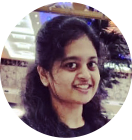 Shereen Backer A
May 24, 2024
Shereen Backer A
May 24, 2024

In today's globalized world, basic German phrases are invaluable for bridging communication gaps across diverse cultures. Whether navigating Germany's streets or living in a German-speaking nation, mastering these expressions is essential. These phrases facilitate everyday interactions, from ordering meals to seeking directions, fostering connections within the German-speaking community and enriching cross-cultural experiences.
Learning basic German phrases offers numerous benefits. Firstly, it facilitates communication when traveling or interacting with German speakers. Understanding simple greetings, questions, and expressions like "hello," "thank you," and "how are you?" can make interactions smoother and more enjoyable. Additionally, it shows respect for the German language and culture, fostering positive relationships with native speakers.
Moreover, knowing basic German phrases can be practical in emergencies or unexpected situations, enabling individuals to seek help or convey essential information. Learning these phrases aids cultural understanding, improved communication, and enhanced experiences when engaging with the German-speaking world.
This blog will explore 20 common German phrases for every situation, facilitating everyday interactions and enhancing cross-cultural connections within the German-speaking community.
Check out: How to Learn German Words Effectively?
Learning a new language can be daunting, but mastering key phrases can make a difference. Here are the 20 essential German phrases for various situations, helping you navigate greetings, asking for help, ordering food, making small talk, and expressing gratitude.
This versatile greeting works in most casual situations, any time of day.
Used specifically in the morning hours, until around noon.
A formal way to say goodbye in most situations.
A polite inquiry about someone's well-being is suitable for formal settings.
Example: You enter a shop: "Hallo!" The shopkeeper replies: "Guten Morgen, wie geht es Ihnen?"
A polite way to get someone's attention before asking a question.
A straightforward way to ask for assistance.
Use this to ask for the location of something specific, followed by the place you're looking for (e.g., Wo ist die Toilette? - Where is the toilet?).
If you're having trouble following the conversation, this phrase politely lets the other person know.
Example: Lost on the street, you approach a passerby: "Entschuldigung, können Sie mir helfen? Wo ist die nächste U-Bahnstation?" (Excuse me, can you help me? Where is the nearest subway station?)
This specifies a single cup and adds "bitte" (please) for politeness.
A versatile phrase to introduce your order, followed by the specific food or drink you desire.
When you're ready to pay, use this to request the check politely.
A friendly way to wish someone a pleasant dining experience.
Example: At a cafe, you can say: "Guten Tag, ich möchte gerne eine Tasse Kaffee, bitte." (Good day, I would like a cup of coffee, please.)
A common conversation starter, ideal for breaking the ice.
Shows interest in someone's hobbies.
A more personal question for getting to know someone better (be mindful of cultural contexts).
Asks about someone's origin in a casual way.
Example: Striking up a conversation with a neighbor: "Hallo, wie ist das Wetter heute?" (Hello, how is the weather today?) They might reply: "Guten Tag, es ist sonnig! Was machen Sie gerne in Ihrer Freizeit?" (Good day, it's sunny! What do you like to do in your free time?)
A simple and universal way to express appreciation.
Used both for requests ("bitte" before the question) and in response to "danke" (you're welcome).
Apologizes for interrupting someone politely.
Expresses deeper gratitude for someone's assistance.
Example: After receiving help with directions: "Vielen Dank für Ihre Hilfe, jetzt weiß ich, wo ich bin! Entschuldigen Sie, dass ich Sie gestört habe." (Thank you very much for your help, now I know where I am! Sorry to bother you.)
By mastering these basic phrases, you'll be well on your way to navigating everyday situations in German and making a positive first impression. Remember, practice is vital! Feel free to try these phrases and gradually build your German communication skills.
Learn more: 10 Fun German Words and Phrases
Mastering common German phrases is achievable with the right approach. Here are some practical tips to help individuals use these phrases effectively:
With these practical strategies, individuals can confidently incorporate common German phrases into everyday conversations, making their language-learning journey effective and enjoyable.
Find out the A1 To C2 German Language Levels
In conclusion, mastering basic German phrases opens new opportunities and deeper cultural understanding. By familiarizing oneself with these essential expressions and incorporating them into daily interactions, individuals can navigate various situations confidently in German-speaking environments. Consistent practice and patience are key to building fluency and making meaningful connections through language. Enrolling in German language training can provide the structured learning and practice needed to achieve proficiency.

English Language and Soft Skills Trainer
Ms. Shereen Backer is a broad minded English language and Soft Skills trainer with Edoxi Training Institute, Dubai. She is fascinated about training young minds and professionals to reach new heights in their career. Her vast experience as an English language and soft skills trainer enables her to handle training sessions for students from diverse cultures.
Ms. Shereen challenges her students to be the best version of themselves. She holds strong records of accomplishment with TESOL/TEFL Certification and IDP Teacher’s Training Program Accreditation.
For the last seven years, she has been working with companies and universities as an ESL/EFL verbal trainer cum academic and career counsellor. She helped more than 500 individuals to clear exams like IELTS, PTE, TOEFL, OET, DET, PSAT, NMSQT and SAT. She also specialises in voice and accent training for English language students.